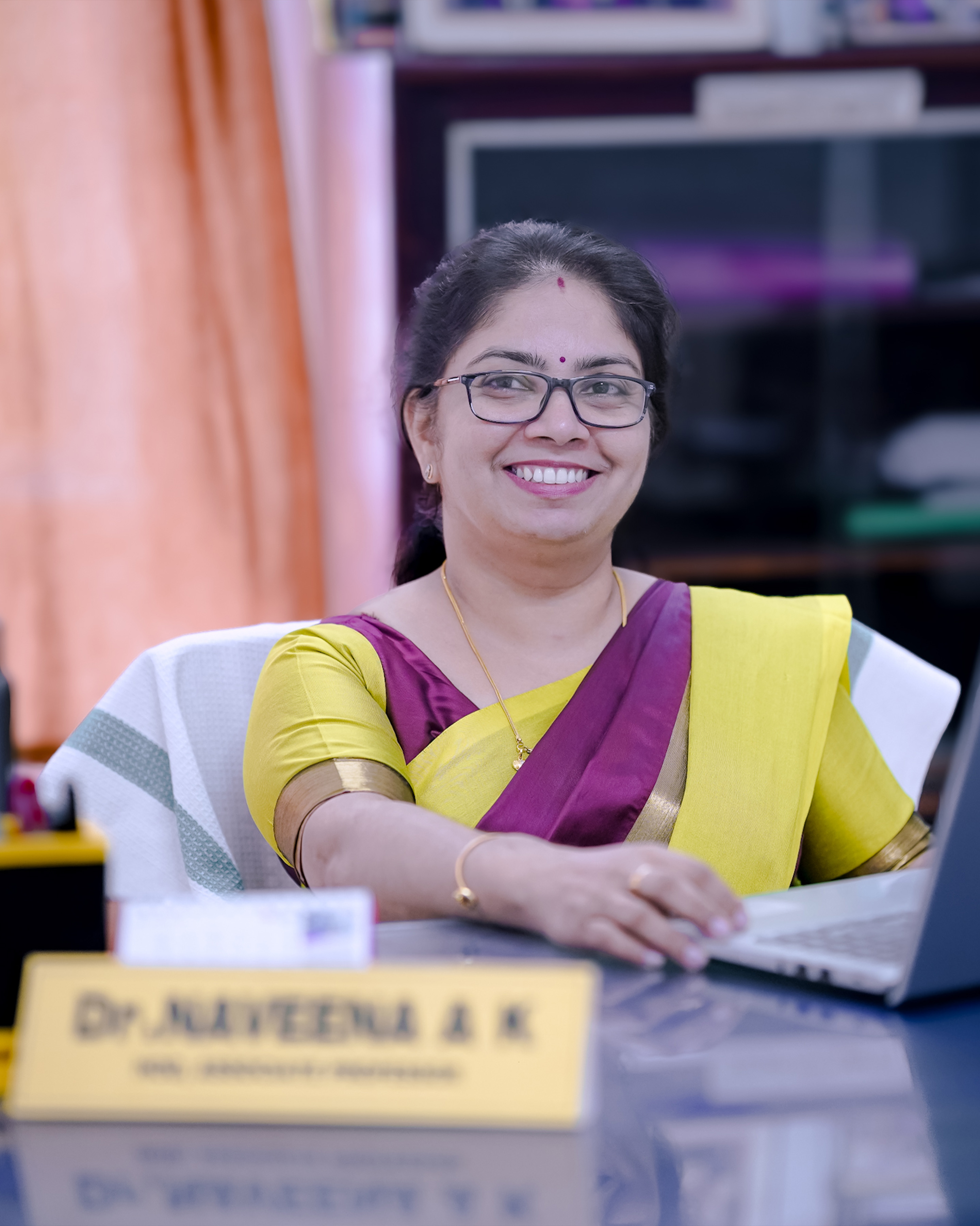College of Engineering Trikaripur Cheemeni P.O, Kasaragod Dist. Kerala - 671313
- Home
- /
- Computer Science and Engineering
Computer Science and Engineering

.jpeg.jpg)


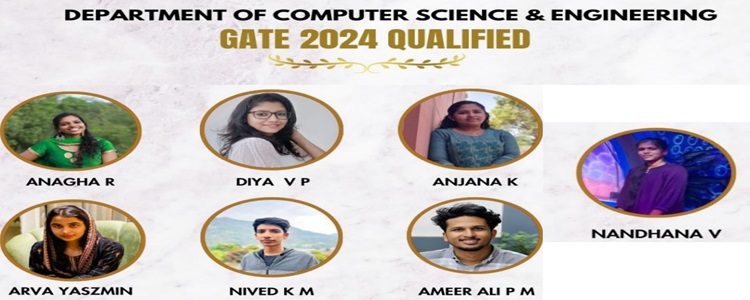
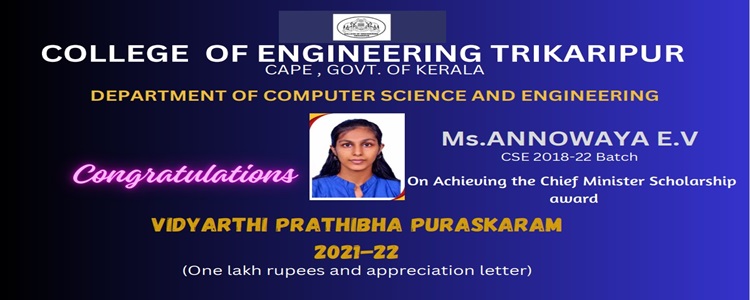
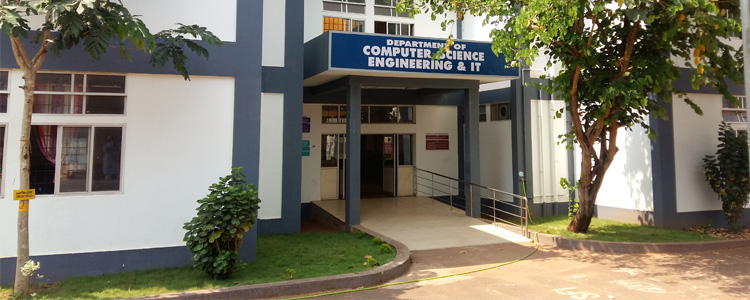
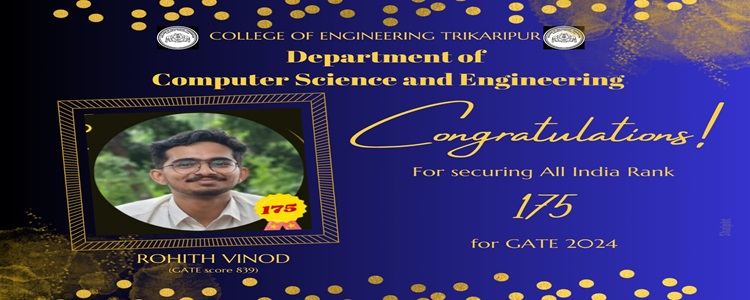
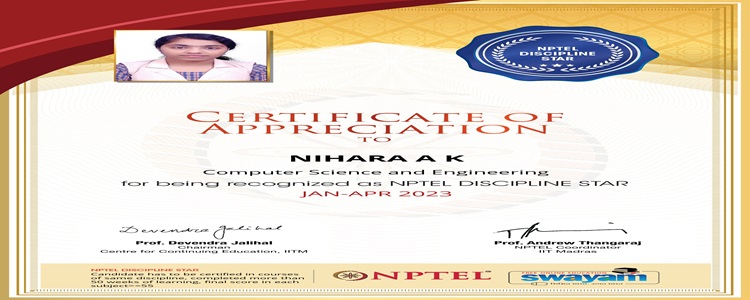
Computer Science and Engineering
The Department of Computer Science and Engineering emphasizes in nurturing the potential of the students and above all plays a vital role in carving out software intellectuals excelling in innovation, creativity and quality. It is one among the commendable departments in the college. The department intake increased to 120 from 2023 onwards.
B. Tech programme in Computer Science and Engineering is accredited by NBA till 30.06.2027. (Ref:F.No.26-48-2013-NBA, dated 04-04-2024) .
VISION
To mould technically competent and socially committed professionals in the field of computer science.
Mission
-
To provide a strong foundation in theoretical and practical aspects of computer science
-
To impart technical skills necessary to generate quality professional according to industry needs
-
To develop human resource with the ability to apply the knowledge for the benefit of the society
- PEOs
- POs
- PSO
- Course Outcomes
Programme Educational Objectives (PEOs)
-
Graduates are prepared to be employed in IT industries or be responsible computing professionals in their own area of interest
-
Graduates can apply the basic principles and practices of computing based in mathematics, science and engineering in solving emerging real world problems related to fields such as programming, networking, information security,image analysis and advanced computing systems
-
To inculcate a professional outlook to graduates and make them communicate effectively and interact responsibly with colleagues, clients, employers and the society
-
Prepare graduates who will pursue lifelong learning and professional development including post graduate education and research activities
Programme Outcomes (POs)
-
Engineering Knowledge : Apply the knowledge of mathematics, science, engineering fundamentals and engineering specialization to the solution of complex engineering problems.
-
Problem Analysis : Identify, formulate review research literature, and analyze complex engineering problems reaching substantiated conclusions using first principles of mathematics, natural sciences and engineering sciences
-
Design/Development of solutions: Design solutions for complex engineering problems and design system components or processes that meet the specified needs with appropriate consideration for the public health and safety, and the cultural, societal and environmental considerations.
-
Conduct investigations of complex problems : Use research-based knowledge and research methods including design of experiments, analysis and interpretation of data, and synthesis of the information to provide valid conclusions.
-
Modern tool usage : Create, select, and apply appropriate techniques, resources and modern engineering and IT tools including prediction and modeling to complex engineering activities with an understanding of the limitations.
-
The Engineer and Society : Apply reasoning informed by the contextual knowledge to assess societal, health, safety, legal and cultural issues and the consequent responsibilities relevant to the professional engineering practice
-
Environmental and sustainability: Understand the impact of the professional engineering solutions in societal and environmental contexts, and demonstrate the knowledge of, and need for sustainable development.
-
Ethics : Apply ethical principles and commit to professional ethics and responsibilities and norms of the engineering practice.
-
Individual and Team work : Function effectively as an individual, and as a member or leader in diverse teams and in multi-disciplinary settings.
-
Communication : Communicate effectively on complex engineering activities with the engineering community and with society at large, such as, being able to comprehend and write effective reports and design documentation, make effective presentation, and give and receive clear instruction
-
Project management and finance : Demonstrate knowledge and undertaking of engineering and management principles and apply these to one's own work, as a member and leader in a team, to manage projects in multi-disciplinary environments
-
Life-long learning : Recognize the need for, and have the preparation and ability to engage in independent and life-long learning in the broadest context of technological change
PROGRAM SPECIFIC OUTCOMES (PSO)
-
Develop creative thinking to identify and apply computing solutions to real world problems
-
Ability to apply engineering skills in the domain like software and hardware design, nerwork design, database design, and knowledge engineering.
-
Project Lab
-
Hardware and IOT Lab
-
Systems Lab
-
Basic Computational Lab
-
Network Lab
Association Activities
Computer Science Association CSE has organized and performed various activities like National Conference, FDP, STTP, Lectures, Seminars, Technical talks and Quiz Competition to improve the personality of students and to enhance their caliber. It also hosts workshops, exhibitions and competitions like instant logic quiz, paper presentation, code debugging and many more.
Dr.Naveena A K
Asso.Professor PhD & HoD
Departments News
-
6 - 03 - 2025 cse department started alumni webinar series
-
20 - 02 - 2025 Seminar on Cloud computing and Devops Engineering
-
23 - 01 - 2025 Hands on Workshop React Fundamentals 2025 January 6-9
-
16 - 05 - 2024 CSE Department - NBA Accredited
